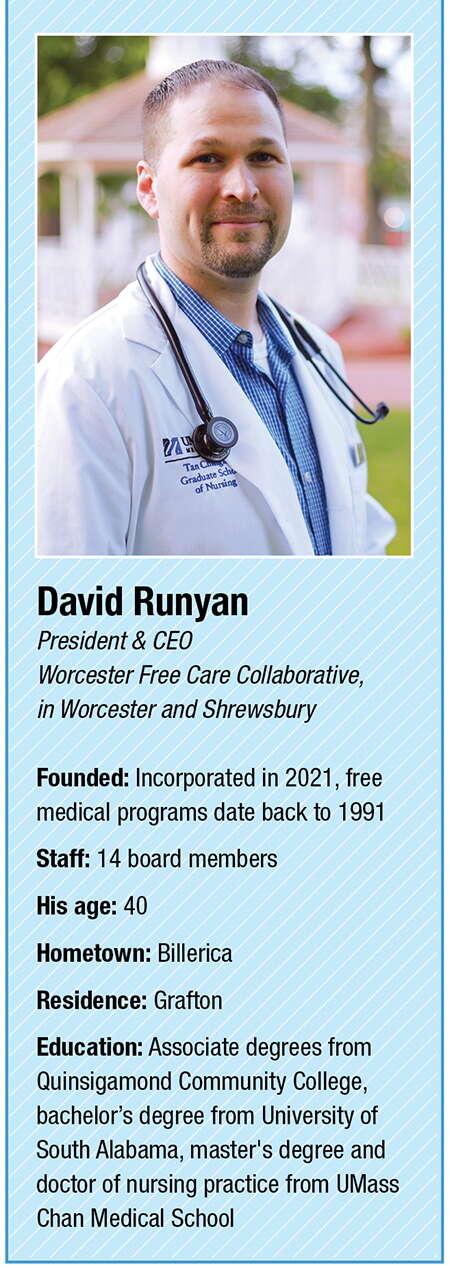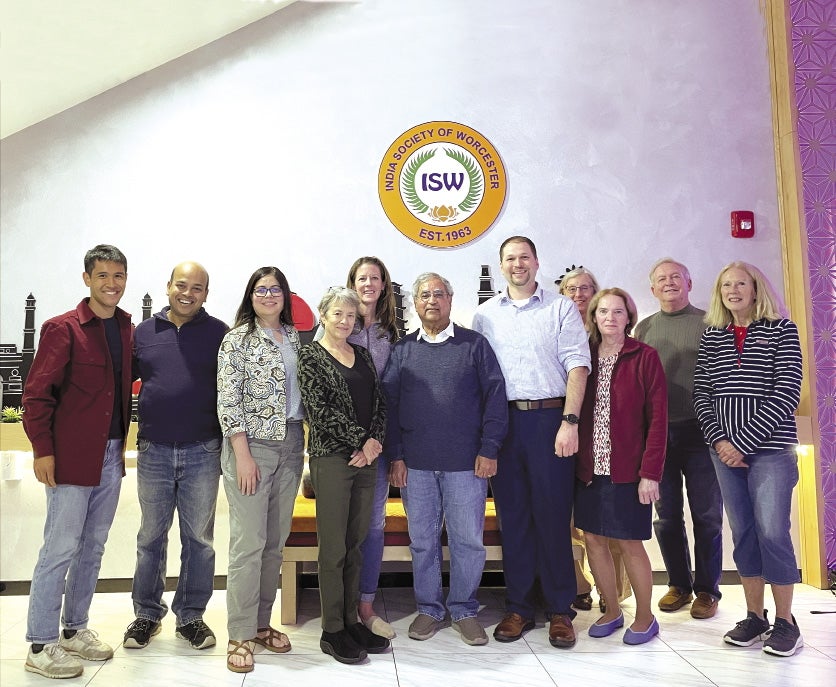
Q&A: Worcester collaborations offer free medical care
 Photo | Courtesy of Worcester Free Care Collaborative
Members of Worcester Free Care Collaborative
Photo | Courtesy of Worcester Free Care Collaborative
Members of Worcester Free Care Collaborative
The Worcester Free Care Collaborative was formed in 2021, when seven pre-existing free medical programs of various backgrounds and faiths came together to form the advocacy group. In 2024, the member organizations of WFCC and its 270 medical volunteers delivered free medical care to 6,500 patients. Today, the WFCC is led by David Runyan, who is committed to health equity and action-oriented medical care.
What is the collaborative?
The collaborative was formed to have a greater influence and a voice for influencing policy and advocating for the patient populations that we serve. The WFCC itself is not providing the care, it's the member programs that are coming together to try to make an even greater impact. We've been establishing relationships with other organizations already in the advocacy space such as the Coalition for a Healthy Greater Worcester.

We engaged with the Massachusetts Department of Public Health to advocate for health equity. One issue we see as a critical public health need is greater tuberculosis screening access. So, we engaged with DPH officials to try to advocate for change in that space.
What services do member organizations offer?
Half of the services we perform are routine and preventative healthcare services like physicals, vaccines, and TB testing, so our patients can go to work or school. The rest of the visits are for specific concerns, such as sick visits.
We have some specialty offerings such as dermatology, oral health, women's health, and ophthalmology. We have case managers at all of our locations to help patients with social determinants of health who are struggling with food insecurity, shelter concerns, transportation, and obtaining health insurance if they're eligible.
Who qualifies for the free medical services?
There are no qualifying requirements. Anybody who shows up is eligible to receive care. We don't turn anybody away. We ask very minimal questions. We don't turn anybody away as long as we have the capacity and can provide the services you need.
Is demand increasing?
We have definitely seen an increase in demand for services. It is multifaceted, but the big things driving patient volume increases are access to care and the cost of health care. Everything is just so unaffordable for many people.
Prior to COVID, the majority of our patients at WFCC free medical programs were people who didn't have insurance and were not connected with primary care providers.
Now we're seeing a significant number of folks who have insurance and a primary care provider; but they can’t get an appointment or their primary care provider has retired, and they can't find anybody else taking new patients.
There is a primary care crisis, and we're seeing a shift in the type of patients and the number of patients coming to receive services from us.
Why did you take on the role of president and volunteer?
Many of our member organizations have been around for decades. I first started volunteering with the Epworth Free Medical Program, which was founded 34 years ago. I did not come from wealth. I faced many challenges, and I can relate to many of the challenges that our patients face. I loved the work I was doing at Epworth and obtained a leadership position there.
When the WFCC formed, I became the inaugural vice president before becoming president. I am honored to work with the most amazing people who volunteer their time to help others. You know you got into health care for the right reasons when you're willing to do it for free. These volunteers are just so passionate. There's something so rewarding when you use your skills and knowledge to make a difference in somebody's life. The gratitude and appreciation that our patients have is what makes all of it worth it.
Those interested in volunteering or donating to support our free medical care services can visit our website.
CORRECTION: A bio box on David Runyan that appeared in a previous version of this article left off his doctor of nursing practice degree from UMass Chan Medical School.
This interview was conducted and edited for length and clarity by WBJ Correspondent Sloane M. Perron.








0 Comments